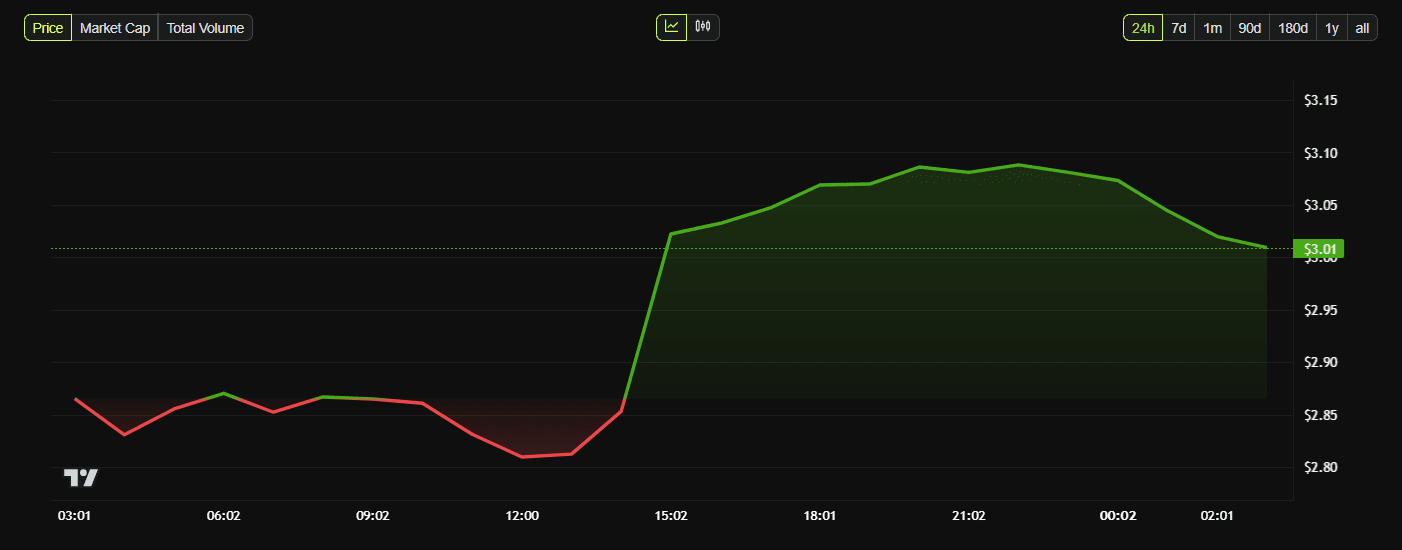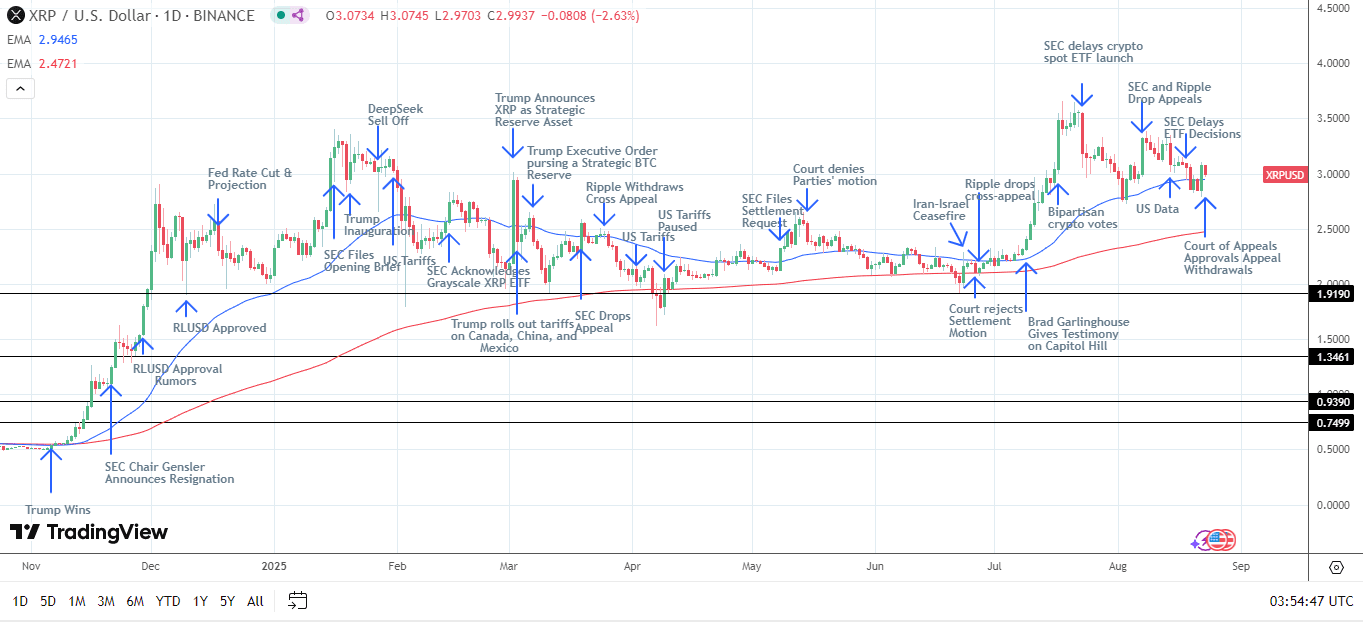In short
Ripple's five-year legal battle with the SEC has officially concluded, ruling that XRP sales on public exchanges are not securities.
The closure immediately triggered a wave of applications: seven major asset managers updated their applications for spot XRP ETFs.
Market observers say that the upcoming application review deadlines by the SEC in October could determine how quickly these products reach U.S. exchanges.
The lengthy legal battle between Ripple Labs and the U.S. Securities and Exchange Commission (SEC) has concluded, putting an end to one of the most closely watched legal disputes in cryptocurrency history.
On August 22, the Second Circuit Court dismissed all remaining appeals, confirming that XRP transactions on public exchanges do not qualify as securities sales. This decision ended a dispute that began in December 2020 when the SEC accused Ripple of raising $1.3 billion through unregistered XRP offerings.
Ripple concluded its five-year battle with a $125 million fine.
Ripple's legal defense lasted nearly five years and cost the company over 100 million dollars, reflecting the complex struggle it had to endure in a hostile regulatory environment shaped by SEC Chairman Gary Gensler and the Biden administration.
However, the course of the case changed in July 2023 when Judge Analisa Torres ruled that retail sales of XRP are legal, while institutional sales violate securities laws.
Initially, Ripple and the SEC appealed this separate ruling, which only increased uncertainty.
However, the political climate has changed with the return of Donald Trump and the appointment of a more crypto-friendly SEC leadership. This event paved the way for settlement negotiations.
By March, Ripple CEO Brad Garlinghouse confirmed a preliminary agreement for a $50 million fine and mutual withdrawal of appeals. Judge Torres initially rejected this agreement, leaving the case open.
However, in early August, both parties jointly requested the dismissal of the lawsuit, and the Second Circuit Court approved this request, imposing a fine of $125 million.
It is important to note that Judge Torres's previous opinion, which emphasized that 'XRP itself is not a security,' remains unchanged.
Market observers believe that this precedent will impact future product approvals and regulatory recommendations.
The growth dynamics of the XRP ETF are accelerating.
The clarity of the court's decision immediately sparked movement in the investment products sector.
On August 22, seven asset managers, including Grayscale, Franklin Templeton, Bitwise, CoinShares, WisdomTree, 21Shares, and Canary, updated their applications for an XRP-focused exchange-traded fund (ETF).
Nate Geraci, president of the investment consulting firm NovaDius Wealth, characterized the spike in activity as evidence that issuers are aligning proposals and preparing for possible regulatory approval.
Notably, the SEC has not approved a spot XRP ETF product in the U.S., despite the presence of leverage.
Meanwhile, cryptocurrency attorney John Deaton noted that October will be a decisive month as the SEC faces several deadlines for ETF applications — starting with Grayscale on the 18th and ending with WisdomTree on the 25th.
Deaton noted that trading these products could begin within a few days if SEC approval follows the process for spot Bitcoin ETFs.

Meanwhile, these events have sparked optimism in the XRP market.
Over the past 24 hours, the token has risen by 4% and was trading at $3.05 at the time of publication.

Bullish scenario: approval of spot XRP ETFs, approval of an OCC license for a U.S. registered bank, increased use of Treasury reserve assets, bipartisan support for the CLARITY Act, or loss of SWIFT's market share in global remittances in favor of Ripple. These factors could push XRP above its all-time high of $3.6606 (Binance exchange), paving the way to $5.
Global macroeconomic events and Bitcoin trends (#BTC ) will also influence XRP's price dynamics.
#Xrp🔥🔥 #Binance #news #altcoins